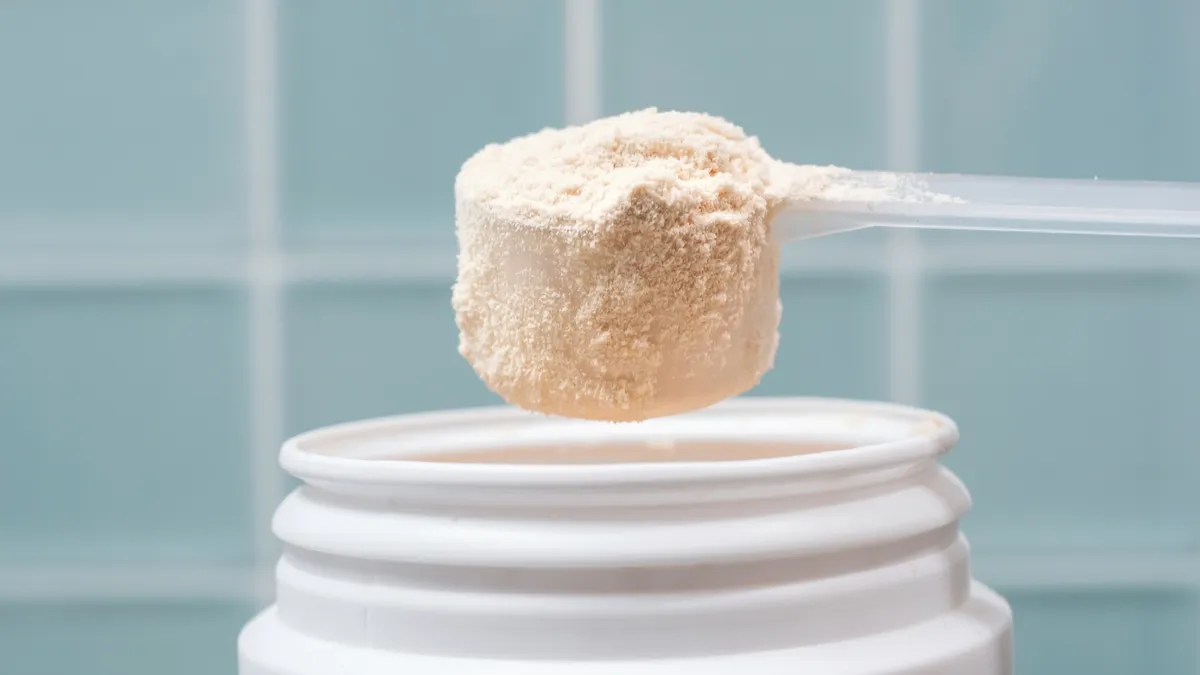
A recent investigation by Consumer Reports has revealed alarming levels of lead in approximately two dozen widely-used protein powder brands. Despite these findings, the nonprofit organization advises consumers not to discard these products hastily. The investigation tested multiple samples of 23 protein powders and ready-to-drink shakes sourced from various stores and online retailers over a three-month period starting last November.
The results, published on Tuesday, indicate that more than two-thirds of the tested products contained lead levels exceeding what Consumer Reports experts deem safe for daily consumption. Some samples exhibited lead concentrations over ten times the recommended daily limit, as reported by Consumer Reports journalist Paris Martineau during an interview with NPR. Notably, the investigation found that plant-based protein powders had particularly high lead levels, averaging nine times higher than those made from dairy and double the levels found in beef-based powders.
In contrast, protein powders and shakes made with whey or dairy proteins generally showed the lowest lead concentrations. However, half of the tested products had lead levels high enough for experts to caution against daily use.
Emily Hilliard, a spokesperson for the Department of Health and Human Services, informed NPR via email that the Food and Drug Administration (FDA) is currently reviewing the findings from Consumer Reports along with other data from its heavy-metal sampling programs. This review aims to better direct future testing efforts and enforcement actions.
The Council for Responsible Nutrition, representing the dietary supplement industry, released a statement urging caution in interpreting the study's results. The group emphasized that modern testing methods can detect trace amounts of naturally occurring heavy metals, which do not necessarily imply a health hazard. They clarified that exceeding Consumer Reports' self-imposed thresholds does not equate to surpassing government safety limits or indicating a safety risk to consumers.
This investigation contributes to a growing body of research on heavy metals found in various everyday products, including cinnamon and tampons. It is not the first study to examine protein powders; earlier this year, the Clean Label Project tested 160 products from 70 brands and found that 47% exceeded California's Proposition 65 safety thresholds for toxic metals.
With no known safe level of lead exposure, experts assert that lead is a pervasive contaminant in many agricultural environments. The most significant risk arises from repeated exposure at high doses, which can result in adverse health effects such as reproductive issues, kidney damage, and cognitive impairments. While Consumer Reports advises against daily consumption of protein shakes, they note that most products tested are acceptable for occasional use. Even those with the highest lead levels are still below concentrations that would cause immediate harm.
To help consumers make informed choices, Consumer Reports has categorized the 23 tested protein powders based on their lead levels of concern, defined as 0.5 micrograms per day—aligned with California's Proposition 65 maximum allowable dose for lead. The organization recommends seven products as better choices for daily consumption, while 12 can be consumed occasionally. They advise limiting two of the products to once a week, specifically highlighting Naked Nutrition's Mass Gainer powder and Huel's Black Edition powder, which contained 7.7 and 6.3 micrograms of lead per serving, respectively.
James Clark, the Chief Marketing Officer at Naked Nutrition, argued that his product's serving size is larger than that of other protein powders, positioning it within normal ranges when measured per gram. Huel, a British plant-based meal replacement brand, published a detailed FAQ addressing the findings of Consumer Reports, asserting that their trace mineral levels meet international safety standards.
The Council for Responsible Nutrition similarly questioned the metrics used by Consumer Reports, suggesting that proprietary thresholds could lead to overstated risks. They noted that without alignment to established federal benchmarks, such metrics might cause unnecessary consumer alarm.
The FDA's guidance earlier this year outlined interim reference levels of 2.2 micrograms of lead per day for children and 8.8 micrograms for women of childbearing age, which serve as target levels for industry groups rather than enforceable requirements. Dietary supplements, including protein powders, are regulated separately from food and drug products, meaning they are not pre-tested or verified before market entry. The FDA can, however, take action against unsafe products post-market.
Given the findings, Consumer Reports advises consumers to avoid protein powders or shakes that carry Proposition 65 warnings, easily identifiable by their bright yellow labels with all-caps text. They encourage shoppers to consult their recommendations when selecting protein products and to consider opting for dairy-based options over plant-based ones when feasible.
Experts from Consumer Reports and the nutrition community emphasize that there is no necessity to rely solely on protein powders to meet dietary needs, as many whole foods provide adequate protein, including Greek yogurt, nuts, legumes, and meat.